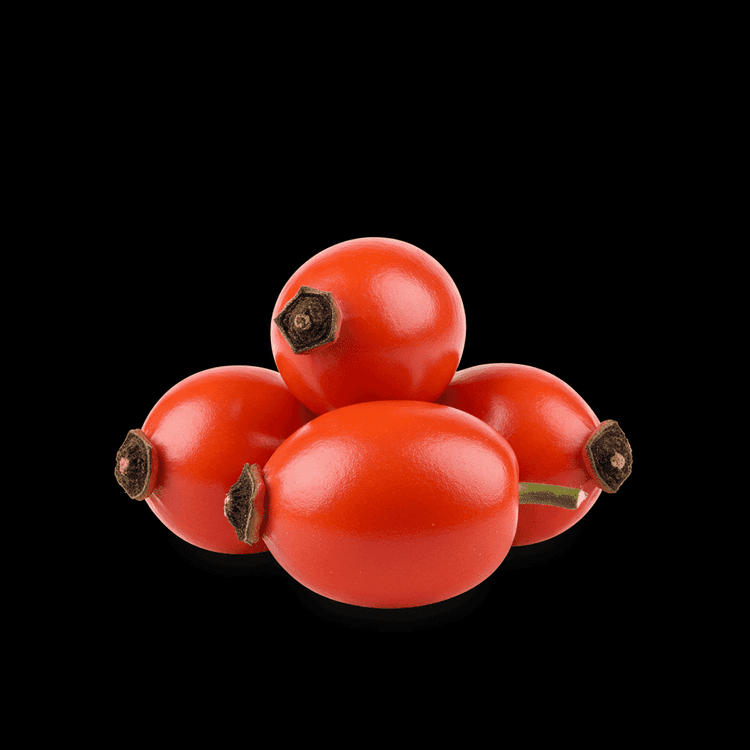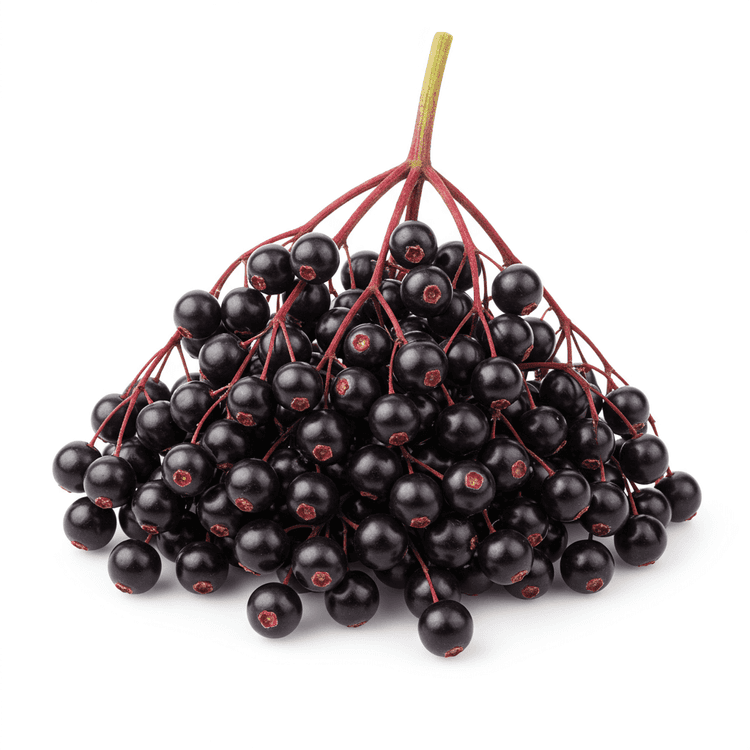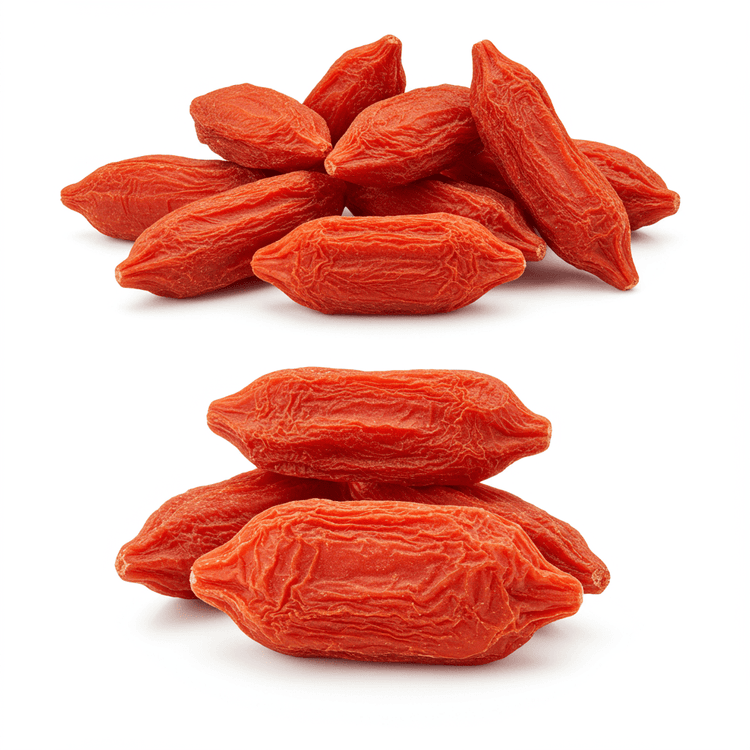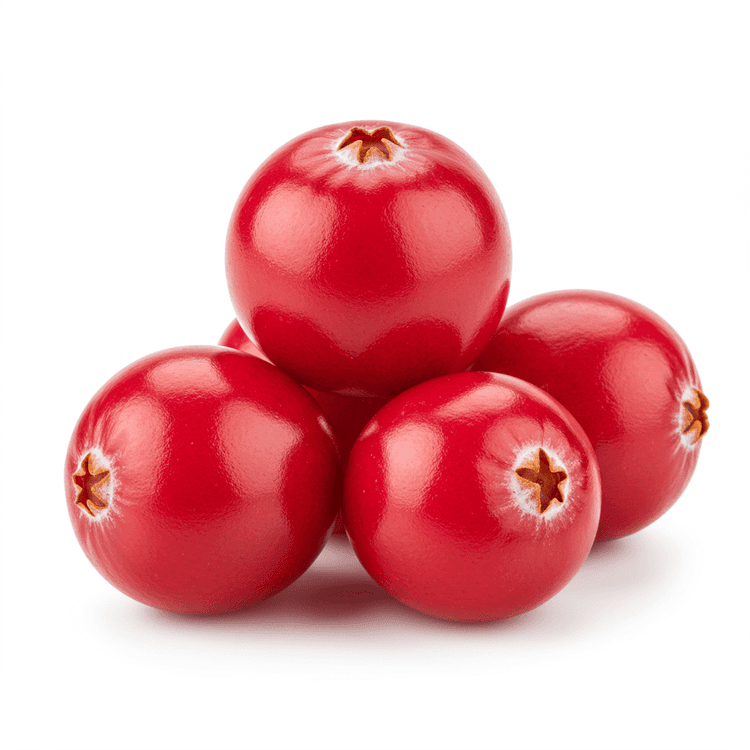
Rose Hip
Rose hips are the fruit of the rose plant, typically red or orange, and known for their tart, tangy flavor with subtle floral notes. These small, berry-like pods are rich in Vitamin C and antioxidants. Rose hips have a firm texture when fresh, becoming softer when cooked. Often harvested after the first frost, they are used in a variety of culinary applications and herbal remedies. When looking for natural sources of Vitamin C and versatile ingredients for jams and teas, rose hips are an excellent choice.
Common Uses
- Rose hips are used to make delicious rose hip jam and jelly. The tart flavor of the rose hip fruit creates a unique and flavorful spread perfect for toast and pastries.
- Rose hip tea is a popular herbal infusion made by steeping dried rose hips in hot water. The tea offers a tangy and slightly sweet taste, known for its high vitamin C content.
- Rose hip syrup can be created by simmering rose hips with sugar and water. This syrup is used to flavor drinks, desserts, or as a topping for pancakes and waffles.
- Rose hip soup, a Scandinavian specialty, is a creamy and slightly tart soup made with pureed rose hips. Often served as a dessert or appetizer, it's a unique and flavorful dish.
- Rose hip oil, extracted from the seeds of the rose hip fruit, is used in skincare products for its moisturizing and anti-aging properties. It's also used to fade scars and improve skin elasticity.
- Dried rose hips are sometimes added to baked goods like muffins and cakes to add a subtle fruity flavor and a boost of nutrients. Finely chop the dried rose hips before incorporating them into your batter.
Nutrition (per serving)
Nutrition (per serving)
Calories
162.0kcal (8.1%)
Protein
0.6g (1.2%)
Carbs
38.2g (13.89%)
Sugars
2.6g (5.2%)
Healthy Fat
0.2g
Unhealthy Fat
0.0g
% Daily Value based on a 2000 calorie diet
Nutrition (per serving)
Calories
162.0kcal (8.1%)
Protein
0.6g (1.2%)
Carbs
38.2g (13.89%)
Sugars
2.6g (5.2%)
Healthy Fat
0.2g
Unhealthy Fat
0.0g
% Daily Value based on a 2000 calorie diet
Health Benefits
- Rich in Vitamin C for immune system support and antioxidant protection.
- High in antioxidants that combat free radicals and reduce oxidative stress.
- May help reduce inflammation and alleviate joint pain due to its anti-inflammatory properties.
- Supports collagen production, promoting healthy skin, hair, and nails.
- Can aid in digestion and relieve constipation due to its fiber content.
- May improve heart health by lowering blood pressure and cholesterol levels.
Chefadora AI is here.
Experience smarter, stress-free cooking.
Storage Tips
To maximize the shelf life of rose hips, store them properly. Dried rose hips should be kept in an airtight container in a cool, dark, and dry place, away from direct sunlight. This will help prevent moisture absorption and maintain their potency for up to a year. Fresh rose hips can be refrigerated for a few days; however, they are best used soon after harvesting. For longer storage, consider freezing fresh rose hips after washing and drying them thoroughly. You can also dry them using a dehydrator or oven.
Marnirni-apinthi Building, Lot Fourteen,
North Terrace, Adelaide, South Australia, 5000
Australia








